Search Results
Showing results 1 to 20 of 54

Caution! Wildlife Crossing
Source Institutions
In this design challenge, learners use their creativity and imagination to design and test a wildlife crossing for their favorite animal.

Is That DNA in My Food?
Source Institutions
In this activity, learners extract DNA from wheat germ. Use this activity to introduce learners to DNA, biotechnology and genetic engineering.
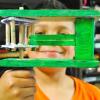
Matraca
Source Institutions
In this activity, learners create a traditional Mexican noisemaker (a matraca) using cardboard, craft sticks, and a wooden dowel.

Pinhole Viewer
Source Institutions
In this activity, learners discuss and investigate how cameras, telescopes, and their own eyes use light in similar ways.

Lung Capacity
Source Institutions
This is an activity about lung capacity. Learners will measure their own lung capacity using a homemade spirometer.

West Coast Shipwrecks
Source Institutions
In this data activity, learners will explore shipwrecks from four National Marine Sanctuaries on the West Coast of the United States.

Oil Spill Cleanup
This hands-on experiment will provide learners with an understanding of the issues that surround environmental cleanup.
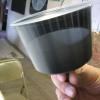
Mini Zoetrope
Source Institutions
In this activity (posted on March 27, 2011), learners follow the steps to construct a mini zoetrope, a device that produces an illusion of action from a rapid succession of static pictures.
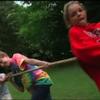
Tug-of-War
Source Institutions
This activity (on page 2 of the PDF under SciGirls Activity: Tug O' War) is a full inquiry investigation into tug-of-war physics. Groups of learners will test two tug-of-war strategies.
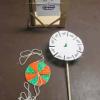
Spinning Illusions
Source Institutions
In this activity, learners construct three optical illusion toys to examine how our brains play tricks on what we see.
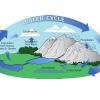
Moving Without Wheels
In a class demonstration, learners observe a simple water cycle model to better understand its role in pollutant transport.

What Color is Your Air Today?
Learners develop awareness and understanding of the daily air quality using the Air Quality Index (AQI) listed in the newspaper or online.

Invisible Sunblock
Source Institutions
This is a hands-on activity exploring how nanoscale particles are used in mineral sunblocks to increase their transparency.

Trash Talkin'
In this activity, learners collect, categorize, weigh and analyze classroom trash and discuss ways that engineers have helped to reduce solid waste.

Writing for Night Vision
Source Institutions
In this activity (page 1 of the PDF under SciGirls Activity: Forensics), learners will use a home video camera with a “night vision” mode to test how various inks appear outside the spectrum of visibl
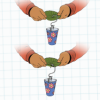
Breaking Point
Source Institutions
In this activity, learners build penetrometers to test leaf toughness. Biologists measure leaf toughness to study the feeding preferences of insects and bugs.
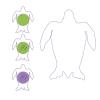
Sea Turtle First Aid Investigation
Source Institutions
This activity (located on page 4 of the PDF under GPS: Sea Turtles Activity) is a full inquiry investigation into testing a repair material.

Racing with the Sun: Creating a Solar Car
Source Institutions
Learners use engineering design principles to construct and test a fully solar-powered car. Solar car kits usually include a photovoltaic cell and motor; some include a chassis as well.
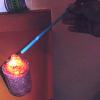
Hot Stuff!: Creating and Testing for Carbon Dioxide
In this demonstration, learners observe vinegar and baking soda reacting to form carbon dioxide (CO2) gas.
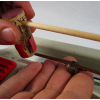
How to Make an Audio Tape Bow
Source Institutions
From this How To slide show, you create an Audio Tape Bow that can play distorted audio sounds by running it across a tape head.
